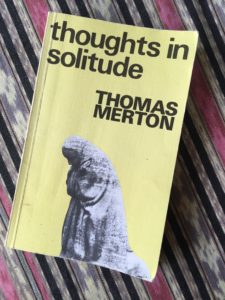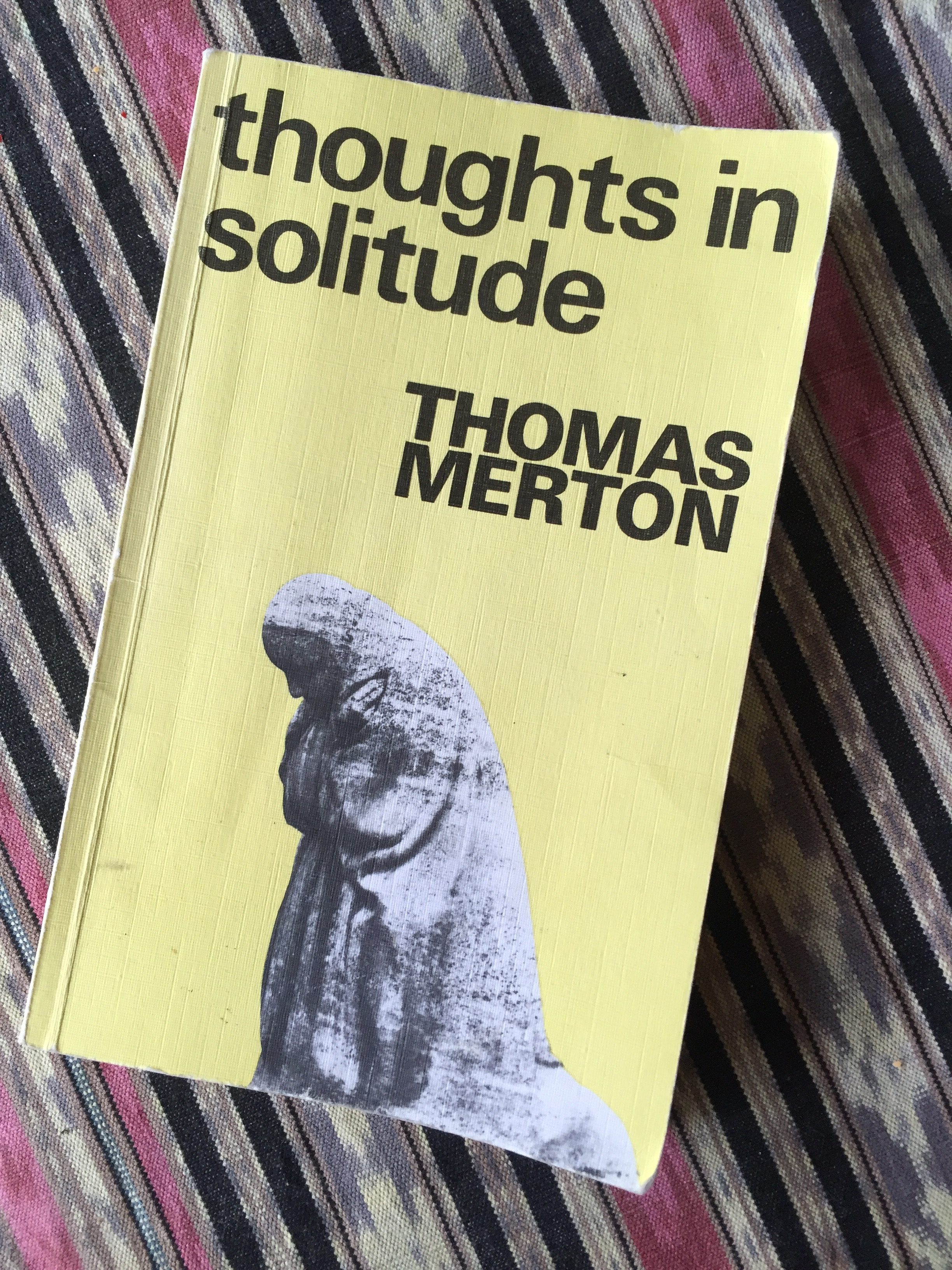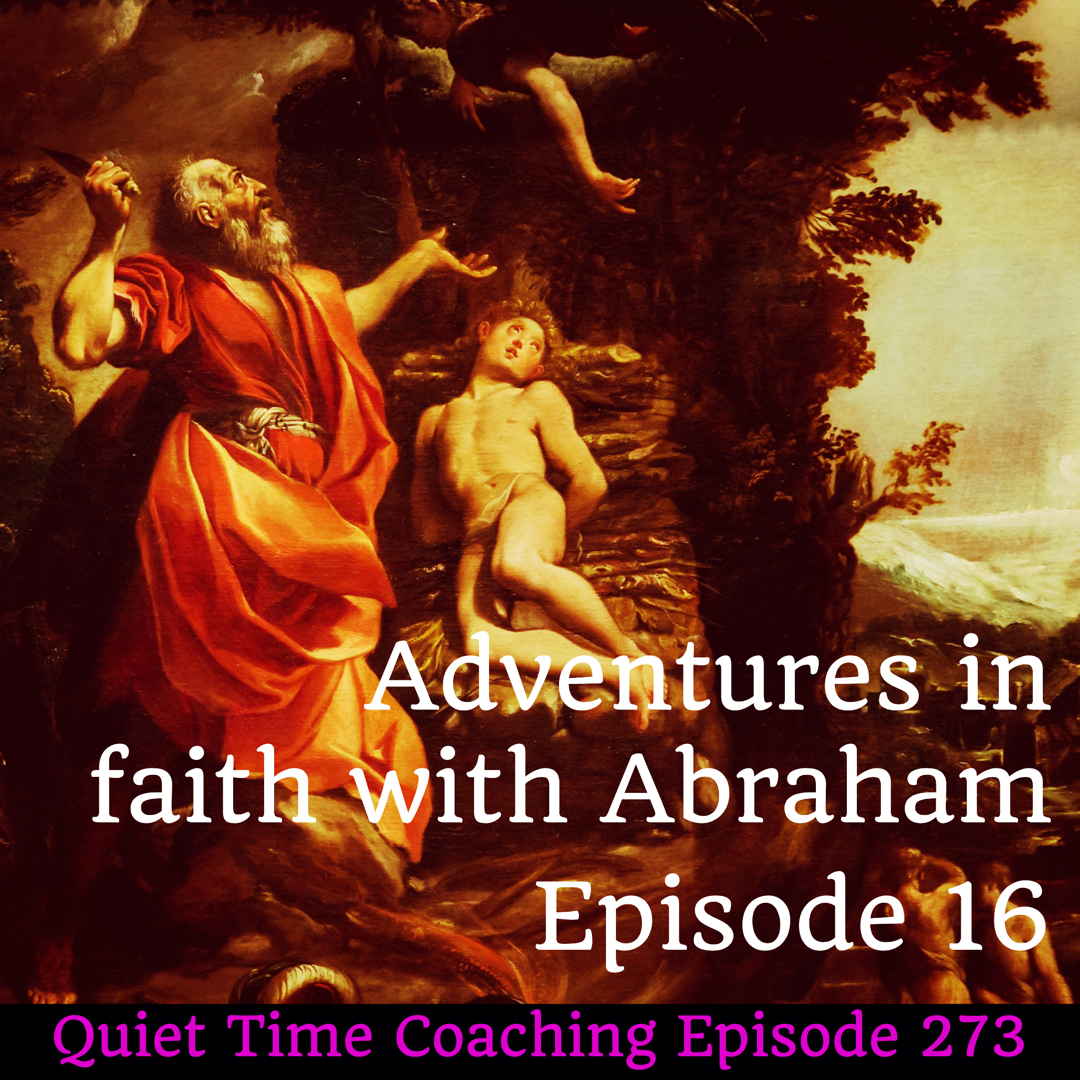 Preamble
Preamble
The world is populated by too many mindless men and women. “Automatons cannot make a society”, and thus we must learn how to choose, and especially how to choose the life of faith. We “cannot choose faith unless we have self determination and freedom.” Solitude is a vital tool in enabling choice – “coming to this place [of ability to choose] requires some solitude”.
Summary
Developing spiritual strength and intimacy with God requires spiritual disciplines. Perhaps solitude is one of the most important and least utilised. Jesus sets the example: “Very early in the morning, while it was still dark, Jesus got up, left the house and went off to a solitary place, where he prayed.” (Mark 1:35 NIV11; cf. Luke 5:16). Merton’s message is a challenge to courageously enter the ‘desert’ of solitude, “Man’s despair will never be solved by conquering the wilderness with materialism, instead his despair will be solved by embracing the wilderness and it’s solitude, and there finding God.” p22 I recommend the book with some caveats. It is best read a chapter at a time, and perhaps once a week. The text deserves proper reflection and assessment as to the accuracy and efficacy of his recommendations. Not all suggestions will appeal or work for all people.
Body of the Book
In part one, “Aspects of the Spiritual Life”, Merton introduces us to the value of the ‘desert’ as wildernesses, “created by God so people can only enjoy him.” In other words, since there is nothing else other than God in the wilderness, we can settle the heart on him. Deserts require self-denial which, “should strengthen our appreciation of emotion.” Joy is heightened by focus, not abundance. The desert is conducive to self-work, enabling us “to have enough mastery of ourselves to renounce our own will into the hands of Christ – so that he may conquer what we cannot reach by our own efforts.” Christlike behaviour is aided by remembering the pleasure of a good act, not to feel good, but to remember that it is more delightful and fruitful “than the acts of vice which oppose and frustrate them”. It is good to take pleasure in serving the poor, speaking the gospel to people, and such like.
Discretion is a key aspect of the spiritual life, but laziness and cowardice can mask as discretion. “Discretion warns us against wasted effort: but for the coward all effort is wasted effort. Discretion shows us where effort is wasted and when it is obligatory. Laziness flies from all risk. Discretion flies from useless risk: but urges us on to take the risks that faith and the grace of God demands of us.” Courage is needed. Cowardice prevents both faith and hope. Yet we are weak. How will God respond? Going to God fully conscious of our weakness is helpful and necessary for us to fully experience his love for us. Therefore we should rejoice in our poverty.
God gives us pleasures in this life, but we do well not to grasp them too firmly. Merton reminds us, “My hope is in what the eye has never seen. Therefore, let me not trust in visible rewards. My hope is in what the heart of man cannot feel. Therefore let me not trust in the feelings of my heart. My hope is in what the hand of man has never touched. Do not let me trust what I can grasp between my fingers. Death will loosen my grasp and my vain hope will be gone.” Instead, we are grateful for whatever God provides. “Gratitude of itself makes us sincere – or if it does not, then it is not true gratitude”, says Merton, and true gratitude is the strongest defence against tepidity.
Humility is perhaps the king of virtues. But, can we love ourselves while remaining humble? The proud man loves himself because he thinks he deserves it. We love ourselves because in loving what we are, it means we have accepted it and that takes us to the mercy of God. Jesus lived a humble life for a purpose. He “lived the ordinary life of the men of his time, in order to sanctify the ordinary lives of men of all time.” Living as he lived requires meditation in prayer. Meditative prayer is bringing the whole of the self to God. Physical, spiritual, emotional. Therefore, it requires significant effort, or “upheaval” as Merton calls it. And prayer, while meditative, is not pure introspection – “We ruin our life of prayer if we are constantly examining our prayer and seeking the fruit of prayer in a peace that is nothing more than a psychological process.” Pure prayer helps refine our will to that of God. To live a truly spiritual life, and one which glorifies God, we must live the will of God and this will connect us with his mercy, because we can only do this with his mercy empowering us. This leaves the question as to how we know that we are living the will of God. Merton seems to be saying that this becomes clear when we remove desire for anything attached to this world. That might work for a monk, but will it work for everyone else?
Reading is a spiritual discipline. It “ought to be an act of homage to the God of all truth”, because books can “bring us light and peace and fill us with silence.” While reading we must not forget to look for the person in the words and the book, instead of just an idea. It’s all about Jesus – “the incarnate Word, is the book of life in whom we read God.” Looking for Jesus stimulates our humility, even though it is a frightening prospect. It is frightening because it is impossible. Merton says that we like a false and shallow humility, humility that he describes as making a person “charming and attractive”. But true humility is a humility that knows it is a liar!
Part two, “The Love of Solitude” focusses on how to enjoy and value solitude. We will have to reckon with anxiety. Merton suggests that “our anxiety is not imposed on us by force from outside. We impose it on our world and upon one another from within ourselves.” How do we respond to challenges and incompletions? “We are not meant to resolve all contradictions but to live with them and rise above them and see them in the light of exterior and objective values which make them trivial by comparison.” (see Isaiah 30:15) Merton appears to be urging us to employ silence as a state that will prevent us from trying to fix our problems by human effort, but instead letting God be God and allow him to define himself to us and his relationship with us. Is this passive?
What action is needful? Merton would argue that listening is not passive – “He is heard only when we hope to hear Him, and if, thinking our hope to be fulfilled, we cease to listen, He ceases to speak, His silence ceases to be vivid and becomes dead, even though we re-charge it with the echo of our own emotional noise.” Resting in God does not mean we do not continue to seek him. A growing relationship requires that we are active in seeking. If we become passive, the resting will become a false contentment and we will find God withdrawing. Or is it us who withdraws?
How is prayer affected? Merton comments, “If my prayer is centred in myself, if it seeks only an enrichment of my own self, my prayer itself will be my greatest potential distraction.” When our hearts are truly centred on God, and everything within us is unified in that, then we do not seek things from God as our fulfilment. Because God is already our fulfilment. However, I would question how this fits with Jesus telling us to ask for our daily bread.
Solitude helps us grow because it is in silence that we become more aware of the immensity of God. “It is a greater thing and a better prayer to live in him who is infinite, and to rejoice that he is infinite, than to strive always to press his infinity into the narrow space of our own hearts.” Trying to bring God into us diminishes him. Taking ourself into him grows us.
Solitude is not an end in itself, however. “Actions are the doors and windows of being. Unless we act we have no way of knowing what we are. Hence to find our spiritual being we must travel down the path made by our spiritual activity.” We find who we are in solitude and in action. “I do not have to run away from myself; it is sufficient that I find myself, not as I have made myself, by my stupidity, but as he has made me in his wisdom and re-made me in his infinite mercy.”
In essence the book is concerned with creating space to be heard, to hear and to handle reality – with God. Merton gives us plenty of sound reasoning to demonstrate the value of solitude. His use of scripture to support his points is of variable effectiveness, and some of his interpretation ventures into more allegorical territory than is warranted. Indeed, more scripture overall would have been helpful. My primary criticism of this book would be Merton’s argument that to be a solitary is a vocation. There is scant Biblical testimony for this. To choose such a life cannot be easy. But it does avoid many of the community aspects of the way God forms Christ in us. I can’t help but wonder if a certain kind of person becomes a solitary to avoid those hardships.
Conclusion
Most of the short chapters are compact nuggets of spiritual gold. Some are more questionable as to their relevance for the average Christ-follower. Read this book and you will likely benefit from its company and reach the conclusion that more ‘solitude’ in your life would be helpful. Keep an open mind about what makes you uncomfortable, but do not accept all Merton’s ideas just because they come from such a persuasive writer and deep thinker.
Malcolm Cox
24 March 2017
The final chapter contains this helpful paragraph on how we read the Bible:
“To those who read scripture in an academic or aesthetic or merely devotional way the Bible indeed offers pleasant refreshment and profitable thoughts. But to learn the inner secrets of the Scriptures we must make them our true daily bread, find God in them when we are in greatest need-and usually when we can find him nowhere else and have nowhere else to look!”

